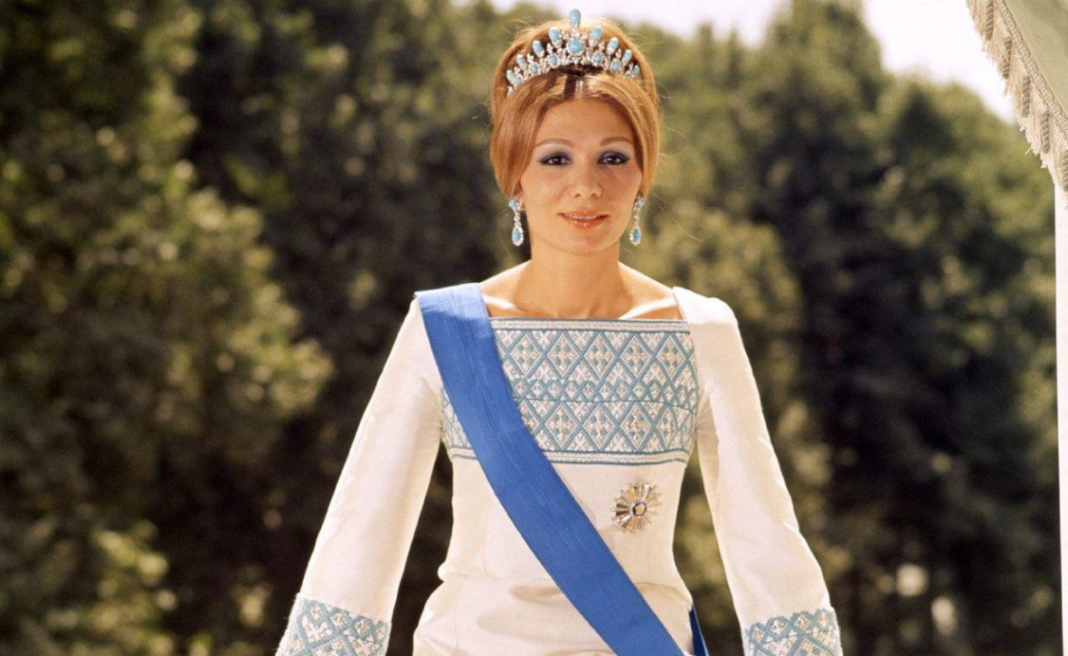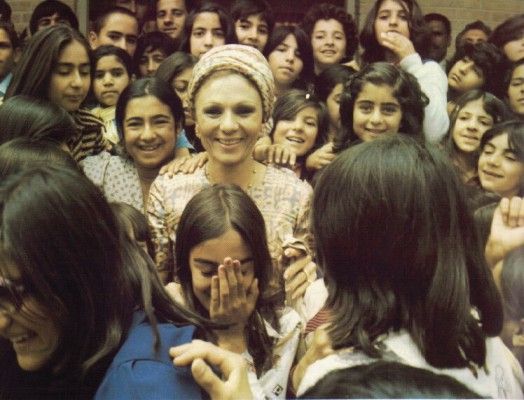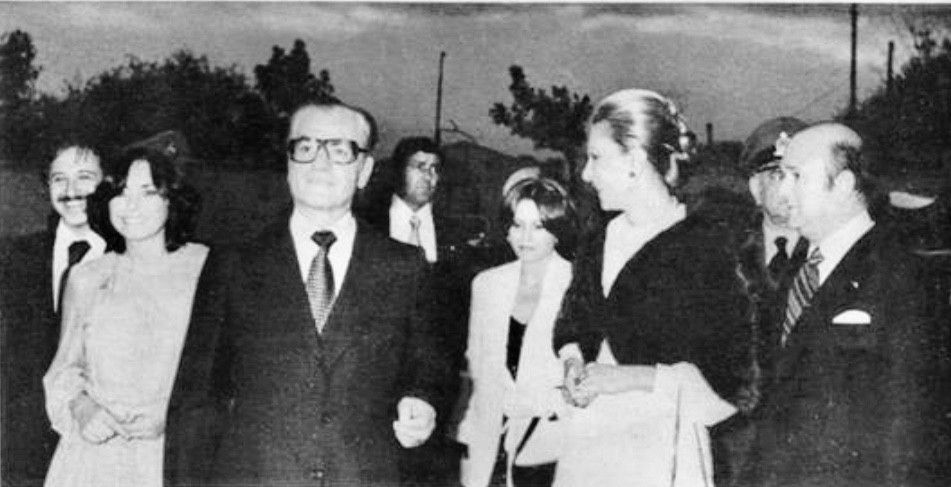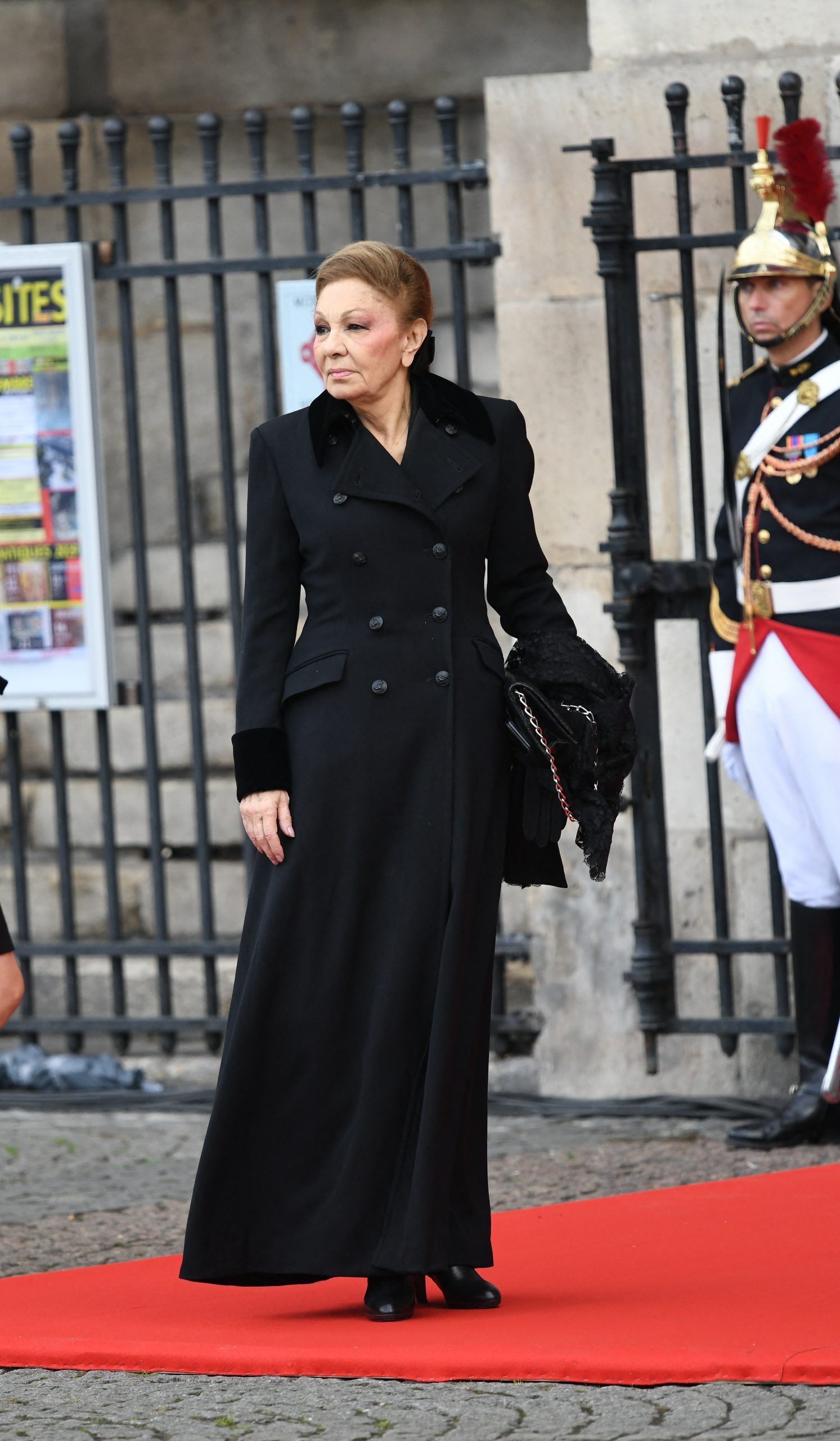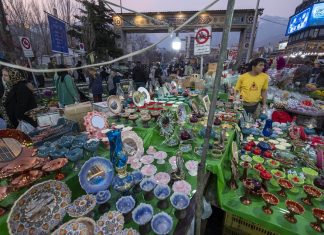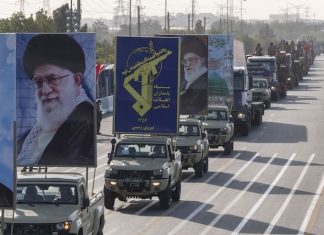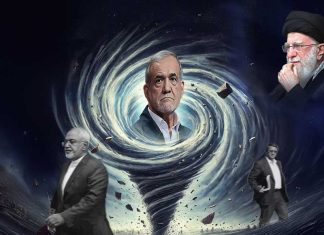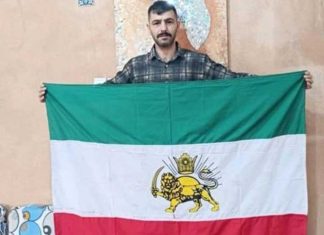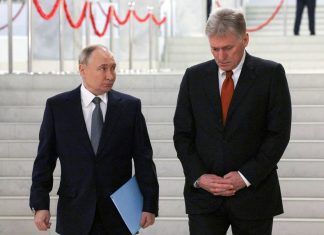By Kayhan Life Staff
October 15 marked the 83rd birthday of Empress Farah Pahlavi, wife of the late Mohammad Reza Shah Pahlavi (1919-1980), who reigned from 1941 until 1979.
The Constitutional Party of Iran hosted an online video gathering on Oct.14 to celebrate Empress Farah’s birthday and recognize her contribution to advancing social and cultural programs in Iran. Empress Farah took part in the online celebration.
Nazenin Ansari, publisher of Kayhan London and Kayhan Life, and Shohreh Nazar, a political activist, were the masters of ceremonies.
Speakers at the virtual gathering included:
- Amir Taheri (journalist and former editor-in-chief of the Tehran-based Kayhan newspaper),
- Amir Hamidi (diplomat and the U.S. Department of Justice envoy),
- Dr. Layla Diba, (founding director of the Tehran Negarestan Museum 1975 – 1979),
- Ardavan Mofid (writer, director and cultural activist),
- Maryam Panahi-Ansary (first female special aid to the foreign minister during the reign of former Mohammad Reza Shah Pahlavi, and a member of the board of the Museum of Contemporary Art in Iran before the Islamic Revolution),
- Kambiz Atabay (Director General for Technical Affairs and Social Services for the royal court, and the president of the Equestrian Federation of Iran, also the president of the Football Federation before the Islamic Revolution, and the head of the private office of Empress Farah after the Islamic Revolution),
- Hayedeh Tavakoli (the former secretary-general of the Constitutional Party of Iran) and
- Fouad Pashaei (the current secretary-general of the Constitutional Party of Iran.)
Guests included:
- Pouran Nazemi (writer, poet, and civil rights activist),
- Farideh Moradkhani (human rights activist, founder of Campaign to Help Imprisoned Political and Civil Rights Activists, daughter of Sheikh Ali Tehrani, and niece of Iran’s Supreme Leader Ayatollah Ali Khamenei), and
- Mahdokht Nazemi (poet).
Saba Khoei, a human rights activist and presenter at the London-based Manoto TV, said: “You [Empress Farah] brighten our world. I am grateful that you are among us [today]. Your presence once again reminds us Iranians living abroad, who have endured humiliation for the past 42 years, of a time when our Empress was popular among her people some 20 years before Diana became known as ‘the people’s princess.’”
The ceremony included a video clip produced by Tina Ghazizadeh and Kayvan Abbasi of Manoto TV.
After the video clip, Amir Taheri delivered a speech in which he said: “The most significant aspect of this program is that it shows that we Iranians have not forgotten how to be grateful. One of the principal national characteristics of Iranians is that they always acknowledge the efforts of those who have dedicated their lives to serving the country. The Empress is an Iranian who, for two consecutive decades, held a very senior and consequential position. Empress Farah’s accomplishments show that Iranians can achieve great things in a short time if they channel their energies appropriately.”
“The late Reza Shah Pahlavi [1878-1944] reigned for only 16 years [1925-1941]. It also took 16 years for the late Mohammad Reza Shah to take control of the situation and implement his programs. This means that Iran can repair all of the damages it has sustained in a relatively short time,” Mr. Amir Taheri explained. “The results of the Empress’s work in advancing social welfare and cultural programs show how much the situation has changed for Iranian women.”
“With only a few exceptions, women were non-existent and played no role in Iranian history from the advent of Islam until the reign of the late Reza Shah,” Mr. Amir Taheri noted. “Iranian women returned to the arena right after Reza Shah came to power, and the progress that Reza Shah started reached its peak during the reign of Mohammad Reza Shah, who crowned Empress Farah Pahlavi as Queen Consort.”
“As archival footage shows, Empress Farah always walked next to the Shah and never behind him,” Mr. Amir Taheri added. “Empress Farah opened the door for Iranian women to pursue their interests in culture, art, philosophy, and dialogue between civilizations. She also made monarchy a compassionate governing system.”
Another speaker, Layla Diba, told Empress Farah that she was not only “the queen of people’s hearts but also of the arts,” adding: “Dear empress, know that we never forget all that you did and continue to do for Iranian culture.”
Amir Hamidi said that Empress Farah had shown unmatched resilience and perseverance in trying to restore the dignity and credibility of Iran, and had been the source of “the greatest moral support” for him.
“I realized that this esteemed lady had to be a massive source of comfort and support to her children and extended family, meaning the Iranian people, while mourning the painful loss of her revered husband,” Mr. Hamidi said. “The empress has always been a selfless, thoughtful, and forgiving source of support to Iranians living all around the world, and she has rejected no one and urged everyone to remain positive and hopeful because all Iranians will ultimately have to think only of Iran.”
Speaking about the special place that Empress Farah occupies in the hearts of all Iranians, Maryam Ansary said: “I am grateful to the Empress for safeguarding Iran’s identity with dignity and pride.”
Kambiz Atabay, the head of the private office of Empress Farah, said: “I had the privilege of serving the Empress at the worst time in my life, because I had lost my country and everything else. Working for the Empress gave me hope and was a bright spot in my life. The positive and lasting results of her services in promoting Iranian art and culture are apparent today.”
“When Iran was becoming an industrial country at an incredible speed, the Empress was developing the social and cultural life of the country to align the nation with the fast pace of those developments, which was a significant undertaking,” Mr. Atabay noted. “The Empress is a humanitarian, and in the past 40 years, I have seen up close how much time she spends listening to people’s concerns. She is a significant source of support and comfort for people who would like someone to hear their voices.”
Highlighting some of the significant cultural achievements of the Pahlavi era, Ardavan Mofid said: “Shahr-e Ghesse [‘The City of Tales’], co-written by Bijan Mofid [and Manuchehr Anvar], is one of the most important plays to be staged during the Pahlavi era at the Shiraz Arts Festival. People still see it whenever it is staged, and the play will remain popular for many years to come. When it was first presented, the audience remained silent until the Empress stood up and applauded, which sealed the play’s place in history forever.”
“What connects me to the days before the [Islamic] Revolution in January 1979 is that it coincided with the staging of the play ‘Eagle and Fox,’ written by Bijan Mofid, performed by Bahman Mofid and directed by me,” Mr. Mofid noted. “The Empress attended the play and was very encouraging, saying the play must be staged abroad.”
“Empress Farah Pahlavi launched a cultural program in the early 1960s by establishing the Center for the Intellectual Development of Child and Adolescents,” Mofid added. “You must put this into perspective. Providing books to disadvantaged children in the south side of Tehran and the remote regions in Iran may not seem a big deal today, but if we go back 100 years to the pre-Pahlavi era, we find that some households banned the reading of books. The Empress encouraged traveling theaters.”
In an emotional speech, Pouran Nazemi hailed Empress Farah’s accomplishments. She said: “I believe some people are born to live forever, and they become historical figures. Farah Diba is such a person. For us and all future generations, she epitomizes kindness, compassion, and a patron of arts and culture.”
“I know a young girl who says ‘mother Farah.’ I feel less embarrassed knowing that mothers have taught their daughters to look to Farah to understand what it means to be a woman and a human being,” Ms. Nazemi added. “One does not need to be a queen, but you fulfilled your duty as an Empress successfully. I wish you a long life. We all love you.”
Hayedeh Tavakoli, the former secretary-general of the Constitutional Party of Iran, said: “Empress [Farah] is an unrivaled Diba and a pure soul, who along with the Shah made a covenant with Iran, and became the mother of an entire nation through her selflessness and compassion. She also advanced the country’s arts and culture.”
“History stands witness to her tireless and benevolent efforts to sow the seeds of [progress] in Iran with love and perseverance, and nurture them with the cooperation and love of her children, the Iranian nation,” Ms. Tavakoli added. “With great humility, she helped the country to develop, progress, modernize, protect women’s and children’s rights, and safeguard rich Iranian culture. She promoted love, kindness, and humanity through it all. As she has said, this is a crown placed on every Iranian woman’s head. This tree has strong roots that run deep into the Iranian soil and can never be dug up.”
Another speaker, Farideh Moradkhani, lamented the day Empress Farah left Iran.
Ms. Moradkhani said: “Greetings to the mother of our land and our dear lady. Do you know the day that you left your home, all of the flowers wilted, the birds were caged, and joyful boys and girls became sad? Iranian arts and culture lost its protector the day you left.”
The ceremony ended with a brief speech by Empress Farah Pahlavi, in which she said: “Thank you sincerely, and I am grateful for all your positive comments and kind words about me. Fellow Iranians, ladies and gentlemen, I was heartened by everything and must admit that you have now made my task that much harder. I did not expect all this. Fortunately, I am in contact with many fellow Iranians inside and outside the country. I am very grateful for all your comments. Before I leave this world, I will remember everything you said about me today, which warmed my heart.”
“When I married His Late Majesty, I started and executed several social, cultural, and medical projects with his support and with the cooperation of Iranian men and women,” Empress Farah added. “Of all those who helped me to achieve those goals, some are still living. I am grateful to all of them. I do not hold negative feelings in my heart and am always grateful for all of the positive events in my life. I hope that light will defeat darkness, and that Iran will rise from its ashes.”
The ceremony was streamed on Kayhan London’s website, on the Constitutional Party of Iran’s YouTube channel, and on Iran International TV.

